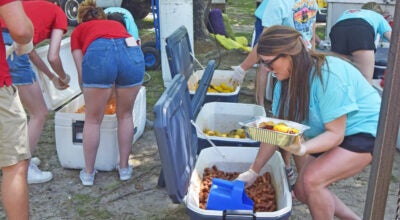‘Sad and scary’ Statistics show rising povery
Published 2:00 am Wednesday, October 17, 2012
Lynn Barnes would love to look around one day and be out of a job.
As director of the Escambia County Department of Human Resources, Barnes sees firsthand the effects of statistics like those released Tuesday from VOICES for Alabama’s Children — statistics that place Escambia County 50th among the state’s 67 counties in child well-being.
“So many children are just adrift, and it’s scary and sad,” Barnes said. “And you see it in the numbers.”
Those numbers include:
• 17.5 percent of births in Escambia County in 2010 were to unmarried teens, ranking the county 61st in the state
• 15.1 percent of the county’s families are classified as “vulnerable,” meaning first births to unmarried teenage mothers not finishing high school
• 35.6 percent of children in Escambia County live in poverty
• 39.7 percent of Escambia County children are in single-parent families.
Barnes said she believes the decline of the nuclear family is a big part of the problem, as is the economy.
“Men are failing to pay child support,” she said, noting that problem, combined with the rise in the need for food stamps, is a strong indicator of poverty in general. “These two trends together show the economy has not recovered where we need it to be.”
With fathers not working — or working at jobs that pay less than before — it is hard, if not impossible, for DHR to garnish wages for child support.
“Again, so much of this goes back to the decline of the nuclear family,” Barnes said. “When you don’t have men at home providing for their children, not just financially but morally,” the problems perpetuate.
So what is the solution?
“That is the million dollar question,” Barnes said. “So much comes from people recognizing the worth of marriage and family.”
Barnes praised Hope Place, the Extension Service agency that helps teach parenting classes and other practical lessons, as well as programs such as the family drug court.
“Hope Place is doing a lot of the front end work,” Barnes said.
Hope Place also has been sponsoring GED classes and job skills training for young people, Barnes said, which can help break the cycle of poverty — and teenage pregnancy.
“If kids have hope and opportunity, they may be less likely to feel like they need a child,” she said. “Sometimes I think kids get pregnant for that reason — they want someone to love and someone to love them.”
But Barnes said that for most people nothing will change until they recognize they need to make a change.
“The first step has to be recognition,” Barnes said. “We are hard-pressed to do anything unless people stand up and say, ‘I want to change, I want something better for my family.’”





